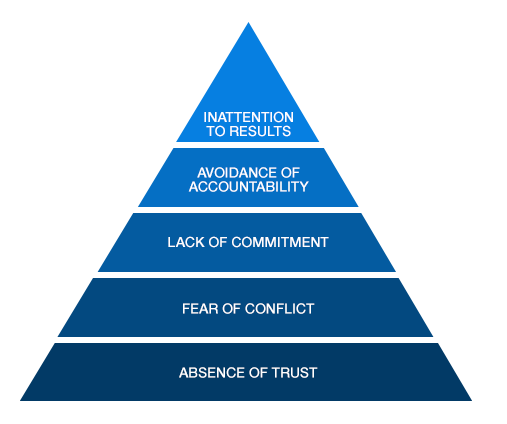Table of Contents

When I hear the words “company culture” my gut reaction is generally to contort my face in some way that conveys “Ewwwwwwww”. It’s just one of those buzz phrases that gets thrown around without anyone knowing what it actually means. But as our team has grown and my role has changed, I’ve been able to step back and spend more time looking at the big picture.
As I began to look at what other companies and founders had to say on the topic, I decided it’d be a healthy exercise to actually try to define what “culture” means for us. What resulted was a document that has become a cornerstone in how our company approaches building everything from our team to the actual product.
What I put together isn’t some 50 page document full of fluff or corporate jargon. It’s two pages…just under 500 words. It lays out what drives us and how that trickles down to things like values and goals.
What I’ve realized is that “culture” is still a really ambiguous word and that it can, and should, mean different things at different companies. Culture is really just the sum of all the parts. It’s not diversity or location or pay or benefits…it’s all of those things and more. Culture is a stew of sorts and everyone’s will taste different.
And while it’s a bit ambiguous, it’s still crucially important as it’s what ultimately drives your company. Defining what it means at your company puts everyone on the same page and gives everyone guiding principles for decision making.
So, let’s take a look at what a culture document should/could look like for your company. I’ll walk you through ours, which you’re free to copy and use as you’d like in your own company. Just remember that your company’s culture will be, at least in part, different from ours, so I suggest making it your own.
Mission
The mission is the engine behind it all. It’s the north star. It’s what guides everyone down the same path. The mission isn’t a milestone, it’s not a feature and it’s not a goal. It’s not something to be achieved.
When defining your mission, think far outside of where you’re currently at. This is “big picture” thinking that you should be doing.
As an example, Baremetrics’ mission is to equip businesses with the tools they need to grow. Everything we do needs to positively answer the question, “Does this help businesses grow?”
That drives all product decisions, all marketing decisions and even the people we bring onto our team.
Values
Next, you need a set of shared values and principles. These are the things it will take for you to accomplish your mission day in and day out. Values are non-negotiable. Every single person needs to embody your values or the mission becomes harder (if not impossible) to accomplish.
Values are more in line with the things you probably think of that define the surface of the culture of a company.
As an example, here are our set of values and principles:
- Be entrepreneurial – Think like an entrepreneur. Make decisions like an entrepreneur.
- Constraints bring out creativity – Whether it’s deadlines, money or technology, we embrace constraints and use them to fuel creative decisions.
- High bar for quality – We sweat the details. Our bar for quality borders perfectionism. The result of obsessing over the small parts is the whole becomes exponentially stronger.
- Relentless focus on success – The only way the businesses we serve can succeed is if we succeed.
- Strong sense of purpose – We’re here to make a difference and that purpose drives us each day to make a better product and a better place to work.
Team
Ah, humans. Your company is driven by the mission, the mission is driven by the values and the values are embodied by your team.
Patrick Lencioni’s The Five Dysfunctions of a Team presents a model about five things that cause teams to breakdown and we want to avoid that at all costs.

Using that model as a guide, we essentially have the inverse of those things as a way to put some parameters on team dynamics.
- Create an environment of trust — It’s hard to be vulnerable and unless we create an environment of trust, we won’t take risks. Asking for help and admitting mistakes resolves problems much more quickly.
- Have healthy conflict — It’s important that everyone feel safe to disagree. It hurts the company and the mission to never push each other to make better decisions.
- Commit to decisions — Once a decision has been made, the team commits to support it fully.
- Accountability to decisions — We are accountable to decisions, deadlines and commitments. Our decisions affect other people (team, customers, etc) and we are each responsible for owning what we commit to.
- Focus on results — We are measured by our output, not our input. The process matters much less than the product of that process. Results are our measure of success.
People
I’ll let this section of our culture doc wrap things up…
Without people, our company can’t exist. Our team can’t exist. The businesses we serve can’t exist. Yes, we’re on a mission. We hold that mission in high regard and everything we do is influenced by that mission. But that mission shouldn’t mask the people. If we haven’t served the people well, then we haven’t served at all. Don’t lose sight of that.



